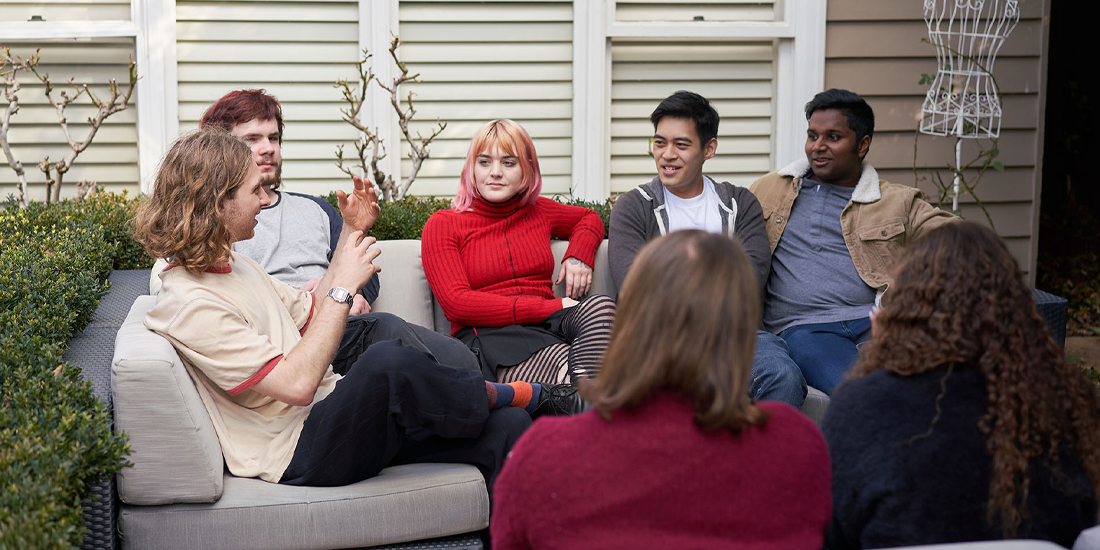
Orygen, Australia’s centre of excellence in youth mental health, welcomes the $2.3 billion increase in funding for mental health and suicide prevention announced last night in the Australian Government’s 2021 budget.
The budget included funding to create a national network of mental health services for all Australians including:
- $278.6 million over four years to expand the headspace centre network, including an additional 10 centres and the upgrade of five satellite centres - taking the total to 164 centres - and work with states and territories to enhance clinical capacity at established centres;
- $487.2 million allocated for eight new Adult Head to Health Hubs and 24 satellites plus $54.2 million for up to 15 new Head to Health Kids mental health and wellbeing centres for children aged 0–12 years; and
- $111.2 million to provide professional counselling, peer support, referrals and clinical support through a single digital platform under Head to Health that includes $13.1 million to support ReachOut Australia to continue delivering free, high-quality digital mental health services to young Australians aged 12–25 years, their parents, carers and schools.
Professor Patrick McGorry, executive director of Orygen, said the Morrison government has listened to expert advice and acted to genuinely strengthen clinical services to improve access to quality of care.
“The government is building the community based infrastructure that will enable Federal and State government investment in mental health care for all Australians across the lifespan.
“The headspace model that Orygen and its partners designed in 2005 has become the blueprint for stigma free access with visible platforms of multidisciplinary care for young people and adults. The strengthening of the headspace network and increased capacity will make a big difference to headspace waitlists and to continuity of care.
“The advent of the adult and child versions of this integrated mental health care model based in the heart of the community validates and extends this approach. It builds a bridge to State governments and encourages them to invest in additional structures to offer care to the ‘missing middle’ of up to two million Australians with more severe forms of mental ill health.”
Professor McGorry said Orygen particularly applauds the investment of $13 million to establish a much-needed National Eating Disorders Research Centre to build the evidence base for effective interventions and treatments.
“This needs a ‘mini-moonshot’ approach to discovery and innovation in treatment as the field has languished for decades with limited progress and a major gap in knowledge. The government has recognised this need for true innovation.
“Orygen also welcomes the investment of $5.7 million to build on the Individual Placement and Support (IPS) program, including piloting vocational peer support workers with lived experience of mental health whilst seeking employment in at least two headspace IPS sites.”
Professor McGorry said suicide prevention was a key feature of the budget, with a total package of $298.2 million, including funding for a National Suicide Prevention Office, working with the states and territories to provide aftercare services to every Australian discharged from hospital following a suicide attempt and $22 million for postvention in communities following a suicide.
“The government has also allocated $202 million in funding to address the urgent workforce and skills shortage in the mental health sector identified by the Productivity Commission Inquiry into Mental Health,” he said.
Investments include: $27.8 million for scholarships and clinical placements to increase the number of nurses, psychologists, and allied health practitioners in mental health settings including in primary care settings such as headspace; $11 million to grow the psychiatrist workforce with more training places; and $3.1 million to boost and support the mental health peer workforce through scholarships and professional collaboration.
Professor McGorry said the 2021 budget was a very important step forward by the Australian Government to lift mental health expenditure in this country to meet the level of need within the community.
“It sets the scene for creating the National Agreement on Mental Health between the Federal and State governments in November to be supported by funding within the Mid-Year Economic and Fiscal Outlook,
“This agreement must now address the needs of the #missingmiddle who are still waiting,” Professor McGorry said.
Read Orygen's summary of the key mental health commitments.